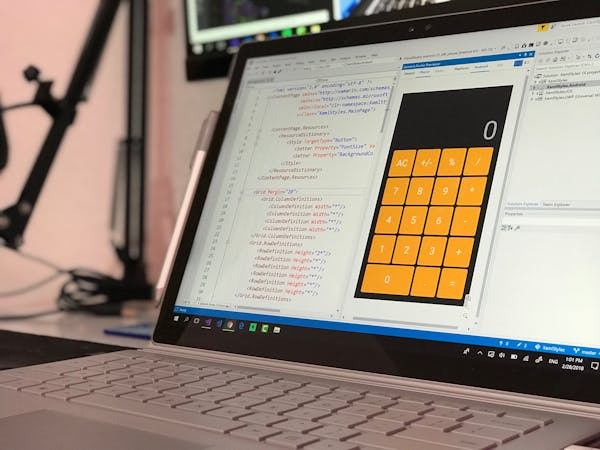Modern commercial enterprises are integrating mobile applications to hire their audience and enhance their productivity. One of the nearly authoritative choices a line demands to handle is whether to fill out native app development or grouchy-platform app ontogeny. Each option has its benefits and challenges, hence making the natural selection a tactical unity considering multiple factors such as budget, target area grocery store, and the goals of the company.This post sums up Native vs. Cross-Platform app development, focusing on the cardinal way out that may enable you to make the right choice for your business.
What is Native App Development?
Native app development necessitates creating applications specifically for an exceptional operating arrangement (OS), such as iOS or Android. These apps are developed using platform-specific programming linguistic processes and tools:
- Swift or Objective-Century for iOS applications.
- Kotlin or Java for Android applications.
Since native apps are planned specifically for one OS, they provide a seamless and high-performance experience suited to the device’s capabilities.
Advantages of Native App Development
- Superior Performance: Native apps leverage the device’s hardware and software optimally, resulting in smooth and fast performance.
- Better User Experience (UX): These apps adhere to platform-specific UI/UX guidelines, providing a more intuitive and engaging user experience.
- Enhanced Security: Native apps have robust security features since they follow strict platform guidelines.
- Full Access to Device Features: Native apps can seamlessly integrate with device-specific features such as GPS, camera, Bluetooth, and more.
- Greater Scalability: They can handle increased loads and complex functionalities efficiently.
Disadvantages of Native App Development
- Higher Development Costs: Building separate apps for iOS and Android requires more time, resources, and expertise.
- Longer Development Time: Since native apps are built separately for each platform, the development process takes longer.
- Maintenance Challenges: Updating and maintaining two separate codebases can be resource-intensive.
What is Cross-Platform App Development?
Cross-platform maturation countenance businesses to make nomadic application programs that run on multiple platforms and employ a single codebase. Developers practice frameworks like React Native, Flutter, or Xamarin to progress apps that bring on both iOS and Android.
Advantages of Cross-Platform App Development
- Cost-Efficiency: A single codebase for multiple platforms reduces development and maintenance costs.
- Faster Time-to-Market: Since most of the code can be reused, development time is significantly reduced.
- Wider Reach: A single app can reach both Android and iOS users simultaneously.
- Easier Updates: Updates and bug fixes can be deployed across platforms simultaneously.
- Consistent UI/UX: Using cross-platform frameworks ensures a uniform look and feel across devices.
Disadvantages of Cross-Platform App Development
- Performance Limitations: Cross-platform apps may not perform as efficiently as native apps, especially for computer graphic-intensive applications.
- Limited Access to Native Features: Some platform-specific features may not be fully accessible or involve additional workarounds.
- UI/UX Constraints: While models strive for a native flavor, they may not oppose the level of polish that weapons platform-specific apps offer.
- Dependency on Third-Party Frameworks: Relying on theoretical accounts means business concerns are dependent on their updates and compatibility with new OS versions.
Native vs. Cross-Platform: Which One Should You Choose?
Choosing between Native vs. Cross-Platform app development depends on various business requirements, including budget, target audience, app complexity, and future scalability.
Here are some scenarios to help guide your decision:
| Factor | Native App Development | Cross-Platform App Development |
| Performance | High | Moderate |
| User Experience | Best | Good |
| Development Cost | Expensive | Cost-effective |
| Development Time | Longer | Faster |
| Security | High | Moderate |
| Maintenance | Complex | Easier |
| Platform Reach | Limited to one platform | Covers multiple platforms |
| Access to Features | Full | Limited |
When to Choose Native App Development
- If your app requires high-performance and complex animations (e.g., gaming or AR/VR apps).
- When security is a top priority, such as in fintech or healthcare applications.
- If you want to provide the best possible user experience with platform-specific UI elements.
- When your budget allows for separate iOS and Android app development.
When to Choose Cross-Platform App Development
- If you need a cost-effective solution that works on both iOS and Android.
- When you require faster development and quicker time-to-market.
- If your app is relatively simple and does not heavily rely on device-specific features.
- When maintenance and updates need to be streamlined across multiple platforms.
Wrapping it Up
Both Native vs. Cross-Platform app development approaches have their merits and trade-offs. The right choice depends on your business goals, target audience, and budget. If performance and user experience are your top priorities, native development is the best choice. However, if you need a budget-friendly solution with a wider reach and faster deployment, cross-platform development is the way to go.
Understanding the strengths and limitations of both approaches will help you make an informed decision that aligns with your business needs. If you are still unsure, consulting an experienced app development team can provide tailored recommendations based on your specific requirements.
At Moobila, we specialize in both Native vs. Cross-Platform app development. Our expert team can help you build a high-performing mobile app that meets your business goals. Contact us today to get started!



